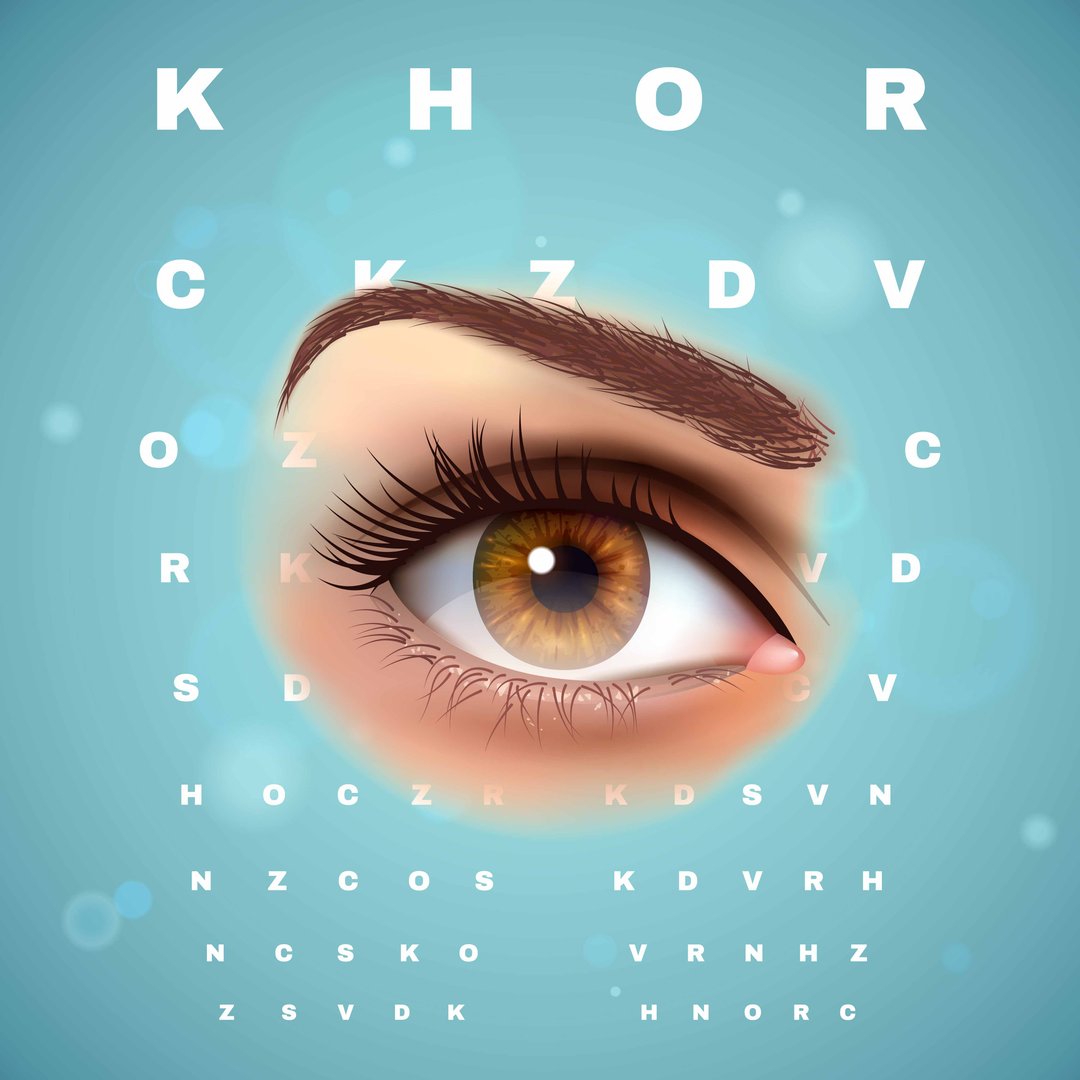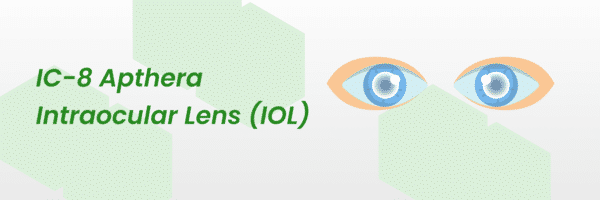What is high myopia?
High myopia, referred to as severe or pathological myopia, is an eye refractive defect characterized by an extreme degree of nearsightedness. A person with nearsightedness (myopia) may see close-up items, but distant ones appear hazy. High myopia increases the degree of close vision compared to mild or moderate myopia.
When the eyeball is elongated, the problem results in light focusing in front of the retina rather than on it. This length can cause a variety of vision issues as well as an increased risk of difficulties with the eyes. High myopia is a born with condition that develops during younger years and increases with age.
When a person has significant myopia, their prescription is at least -6.00 diopters. For people with extreme nearsightedness, routine eye exams are crucial for managing risks and tracking changes.
Learn if LASIK is the right procedure for your excess myopia!
Your well-being is our priority - call us to book your appointment today.
Is LASIK suitable for high myopia?
Some people with high myopia may be candidates for LASIK, but it relies on some different criteria. By reshaping the cornea, LASIK is a common and successful refractive procedure that seeks to treat nearsightedness, farsightedness, and astigmatism. Yet, the effectiveness of LASIK for high myopia is based on the severity of the issue and the patient's eye health.
For people with moderate to extreme myopia, often up to about -8.00 diopters, LASIK is seen as a viable alternative. The range of treatments may, Yet, differ from one eye care specialist to the next due to changes in LASIK technology.
To find out if they qualify for LASIK, those with excess myopia must meet with an expert ophthalmologist or eye surgeon. To decide whether LASIK is a good option, the doctor will perform a complete eye exam, taking into account the patient's eye health, corneal thickness, and other criteria.
Other procedures besides LASIK are available for extreme myopia. Refractive lens exchange and phakic intraocular lenses (IOLs) are two alternatives that can improve vision without the hazards of LASIK. These solutions might be more suited for some patients with severe hyperopia or other eye conditions.
Always keep in mind that every person's eyes are different, thus the best course of action should be chosen after a thorough consultation with an eye care specialist. For your particular case, they can offer the most accurate examination and suggest the best vision correction method.
Let’s uncover what range LASIK can work wonders on!
What level of myopia can LASIK fix?
A variety of myopia (nearsightedness) levels can be treated with LASIK, but the precise treatment range may change based on the technology utilized and the patient's eye health. LASIK can treat mild to moderate degrees of myopia.
Myopia up to -8.00 diopters is widely recognized as treatable using LASIK, with certain skilled surgeons even capable of addressing myopia up to -10.00 diopters or beyond. But not all people with high myopia are good candidates for LASIK, especially if it's severe or if there are other eye health issues. Alternatives like refractive lens exchange or phakic intraocular lenses (IOLs) can be taken into consideration in such circumstances. Always seek the advice of an eye care specialist to determine your best course of action.
To check your suitability for LASIK or any other vision correction operation, it is crucial to visit a licensed and skilled eye care specialist.
How high is too high myopia for LASIK?
The greatest degree of myopia that can be treated by LASIK depends on many variables, including the -
For people with very high myopia, which is usually greater than -10.00 diopters, LASIK is generally regarded as being less suited. This is not a hard cutoff, and some surgeons might be equipped and experienced to cure myopia at higher levels.
High myopia may not be the best candidate for LASIK for some reason, including:
Corneal Thickness:
Because LASIK includes reshaping the cornea, there needs to be adequate corneal tissue to accommodate the modifications. Higher degrees of myopia may cause the corneal thickness to be insufficient for the surgery to be done.
Increased Risk of Complications:
Stronger and thinner corneas may be linked to high myopia, which raises the likelihood of problems such as corneal ectasia. The bulging and instability of the cornea cause corneal ectasia. Before getting LASIK or any other type of vision correction surgery, this can cause difficulties with your vision and needs to be considered.
Visual Quality:
LASIK surgery may not always produce the expected visual results when very high myopia is corrected. There may be a chance of producing higher-order aberrations, which would result in a decline in visual quality.
Alternative Techniques:
For people with high myopia, alternative vision-correction techniques such as phakic intraocular lenses (IOLs) or refractive lens exchange may be more successful and appropriate.
It is crucial to speak with a knowledgeable and experienced eye care specialist if your myopia is -10.00 diopters or worse. They will conduct a complete examination of your eyes and go over the best vision correction alternatives for your unique situation.
It is crucial to remember that every individual's eyes are unique, making it imperative to undergo a comprehensive evaluation by an eye care expert when selecting the most suitable method for vision correction.
Let’s discover the limits and alternatives of LASIK for high myopia.
Take charge of your health and your life. Contact us today!
Are there any limitations or risks associated with LASIK for high myopia?
Yes, there are some restrictions and hazards associated with LASIK for high myopia that should be evaluated before having the treatment. A few of these are:
Corneal Thickness:
High myopia sufferers may have thinner corneas, which may reduce the quantity of corneal tissue that can be reshaped during LASIK.
Visual Quality:
It's possible that correcting severe myopia won't always produce an ideal vision. When there are large pupils present, some people may have visual disturbances including glare, halos, or decreased night vision.
Under correction or Overcorrection:
The possibility of under-correction (not correcting myopia) or overcorrection (overcorrecting myopia) exists while attempting to get accurate refractive results.
Regression:
In some circumstances, the vision may decline necessitating more improvements or touch-up procedures to preserve the desired visual acuity.
Dry Eyes:
People with high myopia may be more likely to develop dry eye symptoms following LASIK, which can be brief or even persistent.
Higher chance of Complications:
Myopic individuals have thinner corneas and distinctive eye traits, making them more vulnerable to LASIK complications including infections or problems with the corneal flap. In these situations, it's crucial to use care and think about other vision correction solutions.
Ineligible for LASIK:
In some cases, the degree of extreme myopia may be too severe to be treated by LASIK, qualifying the patient.
Given these restrictions and dangers, most people with high myopia to have a full consultation with a qualified eye care specialist. To establish if LASIK is a good and secure option for you, they will test your eye health, corneal thickness, and other criteria.
High myopia LASIK success: Discover why so many people experience vision freedom!
How successful is LASIK for high myopia?
Several variables, such as the degree of myopia, the patient's eye health, the surgeon's experience, and the technology employed, might affect how well LASIK for high myopia works. In general, LASIK has proven to be successful in improving vision for many people with high myopia.
According to studies, LASIK has a usually high success rate for addressing high myopia. Many patients have rare visual results and see their need for glasses or contact lenses decrease or disappear. It's crucial to remember that everyone's idea of "success" is different, and some people may still need glasses for specific tasks or experience mild visual disturbances like glare or halos.
The following variables may affect the outcome of LASIK for high myopia:
Corneal Thickness:
Adequate corneal thickness is necessary for LASIK to be successful. People who have thin corneas and high myopia may be more prone to problems or less-than-ideal results.
Preoperative Evaluation:
The patient's eligibility for LASIK is determined by a thorough before surgery conducted by a skilled eye care specialist, who also identifies any potential risks or complications.
Experience of the Surgeon:
A successful procedure depends on the experience and talent of the surgeon. A qualified surgeon is more suited to address the difficulties brought on by too much myopia.
Advanced technologies :
Such as wavefront-guided or topography-guided LASIK, can improve the procedure's precision and accuracy, resulting in better visual outcomes.
Realistic Expectations:
Setting achievable goals is crucial for ensuring patient happiness. Even while LASIK has a high success rate, not everyone will experience perfect vision, particularly in cases of severe myopia.
It's crucial for people with high myopia who are thinking about getting LASIK to have a thorough consultation with a qualified eye care specialist. The surgeon will determine whether they are a good candidate for the treatment.
Learn the truth about the long-term effects of LASIK on severe nearsightedness!
Can high myopia come back after LASIK?
Myopia of any kind, including high myopia, cannot "come back" after LASIK in the sense that the eye returns to its pre-surgery condition. With LASIK, refractive defects like myopia are corrected by altering the cornea's shape. The benefits of LASIK are meant to be long-lasting, and the corneal reshaping is stable over time.
But, it is crucial to realize that following LASIK, certain changes in the eyes may still take place, and these changes may impair vision:
Natural Age-Related Changes:
As a person ages, their eyes experience changes such as crystalline lens changes and the onset of presbyopia (the inability to focus on objects up close). All people are affected by these changes, regardless of whether they have had LASIK or not. They are unrelated to the procedure.
Regression:
In some circumstances, particularly with extreme myopia, there may be a modest decline in the LASIK procedure's efficiency. This implies that a person's vision may revert to its pre-LASIK prescription over time. The entire recovery of extreme myopia does not occur, but this regression is slight.
Other Eye disorders:
Although LASIK is used to treat refractive defects like myopia, it cannot stop the onset of other eye disorders.
Future occurrences of conditions like -
- cataracts,
- glaucoma
- retinal abnormalities are still possible, but they have nothing to do with the LASIK operation itself.
Procedures for enhancement or touch-up:
In some circumstances, a small percentage of people may need a procedure for enhancement or touch-up to perfect the original LASIK correction. To treat any refractive error that was not completely repaired during the initial surgery, this can be required.
It's vital to watch any changes in vision or eye health following LASIK by getting regular eye exams and keeping reasonable expectations about the long-term effects of the treatment. After LASIK, the majority of patients achieve consistent, long-lasting vision improvements, reducing their need for glasses or contact lenses. But, variations in outcomes are possible with any surgical operation.
Take the first step to recovery. Get in touch with us for your treatment.
References:







